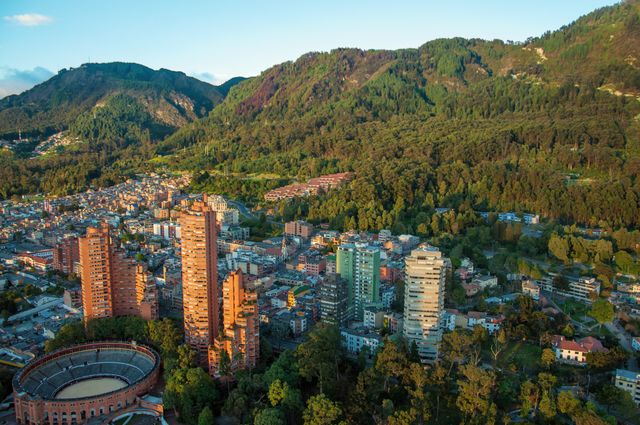
Iván Duque became the youngest president in South America. Last Sunday, he defeated Gustavo Petro in Colombia’s presidential election. The new leader of the country is a 41 year-old lawyer who had previously been mentored by Álvaro Uribe.
Peace needs improvements
The turnout of this year’s presidential election was 53% (over 19,5 million people went to the polls), a record-high in Colombia’s history. Iván Duque won 54% of the votes. During the campaign, he sensed the public sentiment and promised to fight drug traffickers as well as expressed his dissatisfaction with the terms of the agreement with the Colombian Revolutionary Armed Forces (FARC). After the results were announced, he promised that the guilty would be fined or imprisoned.
“The peace we have brought about needs to be rectified so that the real victims are at the heart of the process. We can guarantee truth, justice, reparations, not a repetition”, said the new president. “Today, we are all friends who are building peace. This should be a peace that will, above all, enable the guerillas to be demobilised and disarmed. We need to put it into practice effectively so that public investment can reach the places affected by the violence”, he said.
“One day I will become the President”.
Iván Duque seems to be moving with the times. He wears jeans and shirts without a tie but his views are conservative. He is against the adoption of children by homosexual couples, as well as euthanasia and the legalisation of drugs. He had previously supported minorities but the situation changed when the evangelists and right-wing people joined his campaign.
Duque knows how to dance salsa. As a teenager he used to sign and play in a rock band which he founded with his high school friends. He entered politics only four years ago when he became a member of the Senate as a representative of former President Álvaro Uribe’s Democratic Centre Party. However, he had been observing politics closely before. Iván Duque Escobar, the father of the new president, was a member of the Colombian Liberal Party, Governor of Antioquia department and the Minister of Mines and Development.
The President-elect in the 1990s served as an advisor to the tax office and then for almost 13 years worked for the Inter-American Development Bank in the United States. At that time, he was also awarded a Master’s degree in Economic Law and Public Policy Management.
“Iván would always say: one day I will be the President of Colombia”, recalls Francisco Barbosa, his close friend at the university. “He said it with such conviction that I believed him. He has finally achieved that”, he ended.
The next Venezuela
Duque also got votes from the people who were afraid of Gustav Petro, the candidate of the left. This fear was fuelled by the opposition which argued that Colombia would become “the next Venezuela” if he gets the takes the power.
“We are a politically immature country”, believes Juan Gabriel Gómez, a political scientist. “The left, unlike in Europe, is associated with imposing ideas by force. That is why the proposals of people who identify themselves with the left are quickly labelled as authoritarian or totalitarian. The left is associated with the interventionist economy and restricting the private initiative, which, again, leads to fear”, he said.
Petro wanted to change the country’s economic model and make the Colombian economy independent of oil and coal. He proposed levying taxes on uncultivated land, so that it could eventually be passed on to the poor which, in turn, would increase the agricultural production.
“The most important economic groups in the country are not only conservative, but also orthodox as far as economic policy is concerned. They are also identified with neoliberal policies”, explains Gómez.
The FARC warns
“In the coming months, Colombians will begin to hold Duque accountable for his election promises”, says Martha Lucía Ortega, one of the voters. “He promised to fight corruption and clientelism and to improve the peace agreement with the FARC. People are counting on it”, she concludes.
Talking to the FARC, in particular, is a minefield for the new President as he must strive to avoid a bloodshed. The party, which stems from FARC partisans, issued a statement in which it welcomed the fact that the presidential elections were the most peaceful in years and expressed its readiness “to meet with the President-elect in order to present the views on the implementation of the peace agreement”. However, Rodrigo Londoño “Timochenko”, leader of the party, warned that if Duque forgets what the government has committed to, it “will only lead to a new wave of violence in the country”.
The photograph by jkraft5 shows Bogotá and the Colombian Andes.






















